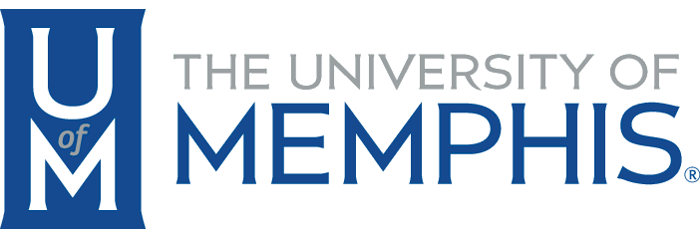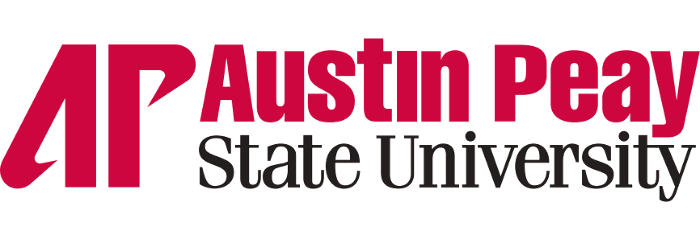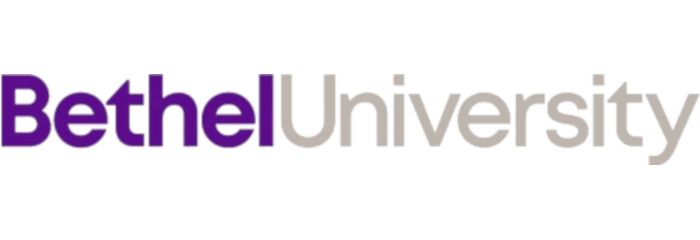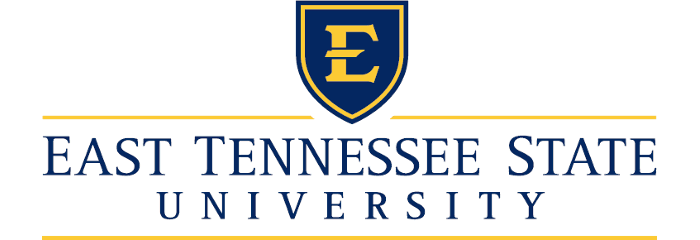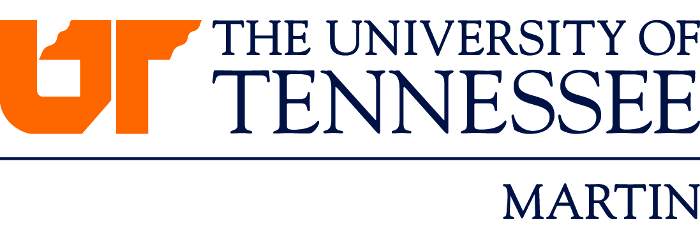2023 Best Online Colleges in Tennessee
There are 85 degree-granting institutions in Tennessee — including public universities, community colleges, and for-profit schools — that collectively offer a range of associate, bachelor's, master's, and doctoral programs. The state also has a range of publicly-funded financial aid and scholarship programs, making it easier for in-state residents to access higher education. The Volunteer State's TNReconnect program was put in place to help adult learners and returning students find their degree path through a series of resources and grants. The initiative can even connect online learners to hundreds of online courses and degree programs at several universities across the state.
For some students in Tennessee, studying online may seem daunting. That's why we've based our list on online enrollment. This will give prospective students a look into which schools emphasize online studies. View our methodology for more details about our list or learn more about OnlineU.
List Of Accredited Online Schools
| School | Online Enrollment | Annual Tuition |
|---|---|---|
| University of Memphis | ||
| Austin Peay State University | 1,448 | $13,847 |
| Bethel University - TN | 1,189 | $17,010 |
| East Tennessee State University | 1,113 | $27,406 |
| The University of Tennessee - Martin | 1,055 | $15,788 |
| Middle Tennessee State University | 1,011 | $27,742 |
| King University | 708 | $30,616 |
| Lee University | 446 | $18,770 |
| Bryan College - Dayton | 376 | $27,900 |
| Tusculum University | 356 | $24,860 |
University of Memphis
- Annual Tuition: $13,752
- Locations: Memphis
- Accreditation: SACS COC
The University of Memphis (UofM) is a public university situated just outside of downtown Memphis, TN. UofM has been featuring online educational opportunities for over 20 years, specializing in fully remote, flexible programs. As of 2022, students can select from over 100 programs, including undergraduate degrees, graduate degrees, graduate certificates, and complementary courses in resource management, college prep, and nutrition. Among the bachelor's degree options are Organizational Leadership, Information Technology, and Political Science. The majority of their offerings, however, are at the master's and graduate levels, with programs such as a Master of Science in Educational Psychology and Research, a Master of Public Health - Epidemiology, and a Graduate Certificate in Teaching English as a Second/Foreign Language.
Coursework is delivered through the Canvas learning management system (LMS). UofM allows students from all over the world to apply for any given program. Once enrolled, support is provided through 24/7 tutoring, library services, and career services.
Austin Peay State University
- Annual Tuition: $13,847
- Locations: Clarksville
- Accreditation: SACS COC
Austin Peay State University (APSU) is a public institution located in Clarksville, TN. They primarily offer undergraduate, graduate, and certificate programs, with only one online associate degree available. Subjects range from marketing and management to criminal justice and social work. Examples of bachelor's degree programs include Criminal Justice, Management, Marketing, Political Science, and Sociology, to name a few options.
All coursework is delivered through the Brightspace LMS, allowing for a combination of synchronous and asynchronous learning. Prospective graduate students may take advantage of APSU's one-on-one online advisor calls to learn more about their preferred program. After enrollment, online students may benefit from a number of resources, such as academic coaching and individual tutoring.
Bethel University - TN
- Annual Tuition: $17,010
- Locations: McKenzie
- Accreditation: SACS COC
Bethel University - TN is a private, Christian university in McKenzie, TN. Their slate of academic offerings includes 43 online degrees, licensure programs, and certificates. The majority come from Bethel's College of Professional Studies, while a select few are in the school's College of Health Sciences and College of Arts and Sciences. Program examples include a Bachelor of Arts in Christian Studies, a Bachelor of Science in Business Administration - Accounting, and a Bachelor of Arts or Bachelor of Science in History. Bethel also host an honors program that accepts only a limited number of students.
Coursework for each degree is delivered through Moodle, an online LMS. After graduation, students may receive career support through Bethel's career services department.
East Tennessee State University
- Annual Tuition: $27,406
- Locations: Johnson City
- Accreditation: SACS COC
East Tennessee State University (ETSU) is a public institution located in Johnson City, TN. It offers flexible online programs through undergraduate degrees, graduate degrees, and graduate certificates. While students can take a substantial portion of ETSU's offerings 100% online, some programs require in-person practicums, such as the Bachelor of Science in Early Childhood Development and the Doctorate of Philosophy in Nursing Program. Among the 100% online degrees are the Bachelor of Business Administration - Management, Bachelor of Arts in English, and Bachelor of Science in Human Services, among others.
Instructors may deliver classes synchronously or asynchronously, depending on the course, through the Brightspace LMS. Online students have access to digital libraries and tutoring through ETSU's Center for Academic Achievement. Career services are also offered including resume reviews and job boards.
The University of Tennessee - Martin
- Annual Tuition: $15,788
- Locations: Martin
- Accreditation: SACS COC
The University of Tennessee - Martin (UT Martin) is a public university located in Martin, TN. The school offers 30 online programs. Each degree can be completed 100% online on a schedule that's flexible and convenient for the individual. Some examples of programs include a Bachelor of Science in Agriculture Business, a Bachelor of Arts in History, and a Bachelor of Science in Nursing. In addition, nine of UT Martin's online programs come in the form of a master's in education. Students at UT Martin use the popular LMS Canvas to finish their online coursework. Students receive support through academic skill development, tutoring, and career planning.
Overview of Higher Education in Tennessee
Tennessee has nine public universities, 13 community colleges, and 27 applied technical colleges. Its public education sector — which serves roughly 240,000 students —is organized into different groups. For instance, the Tennessee Board of Regents (TBR) comprises all the state's community colleges, while the University of Tennessee system has several campuses across the state. Complemented by a number of private schools, Tennessee's higher education sector serves over 360,000 students. Enrollment rates vary based on degree and institution type. In fall of 2020, for example, 12,710 students enrolled in two-year community colleges, while roughly 15,400 attended public universities. By contrast, 3,877 students enrolled in private institutions.
Tennessee lags behind the national average when it comes to the percentage of degree holders in the state. While an estimated 36% of the population aged 25 and over hold at least an associate degree, only 28.7% have bachelor's degrees or higher. As a result, there is a concerted effort to increase college access for in-state residents. Specifically, Tennessee's Drive to 55 initiative offers various scholarships and aid packages to increase the percentage of college degree holders in the state to 55% by 2025. This program includes state-funded scholarships and grants, such as Tennessee Promise, Tennessee Reconnect, and the Tennessee Hope Scholarship.
While an estimated 36% of the population aged 25 and over hold at least an associate degree, only 28.7% have bachelor's degrees or higher.
Online Colleges in Tennessee
Online education is ideal for learners who work while attending school as well as individuals who need to fit classes around their busy schedules or personal commitments. Admission requirements for in-person and online bachelor’s programs are often similar. Prospective college students coming from high school typically need at least a 2.7 GPA. They will also need to submit SAT or ACT scores that are in the 75th percentile.
Many colleges and universities in Tennessee offer distance learning programs, allowing students to complete their degrees exclusively online. Distance learners can pursue their online education either full- or part-time, with both formats typically structured around asynchronous learning. Degree completion programs are also available to students with previous college credits. Tennessee students can choose between a range of degree levels in different subject areas. For instance, the TBR operates TN eCampus, an initiative offering online associate degrees, certificates, and diplomas as well as online bachelor's and master's programs in disciplines such as information technology and healthcare. Additionally, given the changing nature of Tennessee's economy toward business and service-related industries, many University of Tennessee campuses offer online bachelor's degrees in multiple social science, business, and STEM fields.
Many colleges and universities in Tennessee offer distance learning programs, allowing students to complete their degrees exclusively online.
Cost of Online Colleges in Tennessee
The average annual tuition in the U.S. is $25,615 for a bachelor’s degree. By contrast, students in Tennessee pay an annual fee of $10,083 on average, a considerably lower amount than the national average. In fact, the cheapest online school in the state is Tennessee State University, with an annual tuition rate of $4,200.
The average annual tuition in the U.S. is $25,615 for a bachelor’s degree. By contrast, students in Tennessee pay an annual fee of $10,083 on average, a considerably lower amount than the national average.
Students interested in pursuing an online degree in Tennessee can reduce their tuition costs in several ways. Students who live in one of the 15 states participating in the Southern Regional Education Board (SREB) qualify for in-state tuition in Tennessee through the Academic Common Market. This program allows students to pursue specific degrees in SREB-member states without having to pay out-of-state tuition. Students may also be able to reduce their tuition costs by earning experiential learning credits through TimewiseTN or by applying for financial aid.
Financial Aid for Tennessee Students
Tennessee residents are uniquely situated to benefit from aid opportunities. The state leads nationwide on the number of financial aid programs offered, including merit and need-based scholarships and grants and free college options that serve adults and high school graduates. For instance, the Tennessee Reconnect grant encourages adults to begin or return to higher education by covering any additional tuition fees that financial aid did not cover. Students need to maintain continuous enrollment in a degree program with a minimum GPA of 2.0 to remain eligible for Tennessee Reconnect.
Tennessee also awards the highest number of scholarship dollars per year. Tennessee Promise is a last-dollar scholarship program that offers two years of free college tuition to in-state residents who graduate high school and attend a community or technical college. Students in Tennessee receive roughly $1,813 in financial aid every year, but they can also apply for federal funding, work-study programs, and private grants. Students should also contact the financial aid departments of their schools to inquire about institutional grants and scholarships. Importantly, online students at Tennessee colleges and universities are eligible for the same sources of aid as on-campus peers.
The first step to secure financial aid is to fill out the Free Application for Federal Student Aid (FAFSA). The Department of Education uses this form to gather information about a student's finances. The Tennessee government, along with public and private schools throughout the state, use this data to determine the amount of financial aid for each student.
Below is a brief list of additional funding opportunities available to online Tennessee students.
Tennessee HOPE Scholarship
Funded by net proceeds from the state lottery, this scholarship awards Tennessee residents varying amounts to pay for their educational expenses. Freshmen and sophomores of four-year institutions may receive $1,750 and $2,250 per semester, respectively. Students enrolled at two-year institutions may receive $1,500. Applicants must be Tennessee high school graduates and have a minimum 3.0 GPA.
Tennessee Explore Scholarship Program
This award explicitly recognizes and supports out-of-state students at the University of Tennessee Knoxville who demonstrate academic excellence. Incoming students can receive awards ranging from $4,000-$7,500 per semester. To be eligible, applicants must be U.S. citizens, permanent residents, or domestic students with at least a 3.6 high school GPA.
Tennessee STEP UP Scholarship
This scholarship offers awards each semester, including $1,750 for freshmen and sophomores and $2,250 for juniors and seniors. Applicants must be high school graduates from Tennessee who are currently enrolled full-time in a participating college or university as in-state residents.
Tennessee Student Assistance Award
The Tennessee state government assists Tennessee residents with financial need, ranging from $1,000-$4,000 based on a student’s program and school.
Accreditation for Online Colleges in Tennessee
Accreditation is a process whereby a third party evaluates a college or university according to national educational standards. The accreditation process involves assessing the school's facilities, faculties, program offerings, and curricula. In other words, attending an accredited institution means that a student has access to quality education. Additionally, this stamp of approval is necessary for federal and state aid programs along with many scholarships and grants. This funding is only awarded if a student is enrolled in or planning to attend an accredited school. Furthermore, individuals who attend such schools will also find it easier to transfer credits between institutions.
Additionally, this stamp of approval is necessary for federal and state aid programs along with many scholarships and grants.
Higher education institutions voluntarily submit themselves for evaluation to receive accreditation from national, regional, and programmatic bodies. National accreditation bodies assess schools nationwide. By contrast, regional accreditation — the most common form of appraisal — is carried out by organizations that operate in specific parts of the country. For instance, schools in Tennessee are regionally accredited by the Southern Association of Colleges and Schools Commission (SACSCOC), an organization that evaluates higher education institutions in 11 southern states. In addition to national and regional accreditation, schools can also receive programmatic accreditation. This is when an organization gauges whether a specific degree program, rather than the institution as a whole, meets educational standards in a given field of study.
Undergraduate and graduate students who plan to pursue their higher education in Tennessee should verify whether their prospective college or university is accredited by SACSCOC. They can also explore the Council of Higher Education Accreditation website to check which organizations offer accreditation for their chosen degree program.
Tennessee Employment Outlook
After a significant unemployment spike in April 2020, Tennessee’s employment rates have been gradually increasing. The state's labor participation rate has been consistently over 60% in 2021. Tennessee’s economy is rapidly moving away from agriculture and manufacturing toward service provision, and the state is projected to have 200,000 new jobs available through 2028. As a result, the highest demand for workers and professionals through 2028 is expected in business and professional services, healthcare, and the information sector. Popular employers for college graduates in these sectors include HCA Healthcare, the University of Tennessee system, and the State of Tennessee.
To further boost these economic trends, the Tennessee Department of Education offers guidance on how to pursue specific career pathways. For example, they present students with information about the skills, coursework, and experience they need to achieve career goals in specific sectors. The state also offers several apprenticeship programs in certain areas, such as healthcare and hospitality, which can expand an individual's career prospects.
Despite a growing job market, however, Tennessee's median yearly salary of $37,442 is lower than the national average. Healthcare and business professionals are the highest-paid employees in the state, while food service workers and laborers earn the lowest wages. This data suggests that a two- or four-year college degree increases a Tennessee resident’s earning potential. In 2019, for instance, Tennessee’s bachelor's degree holders earned $67,436 as a median annual salary, nearly twice the amount made by those without a college education.
Data suggests that a two- or four-year college degree increases a Tennessee resident’s earning potential.
Careers for Tennessee College Graduates
With Tennessee's economy increasingly catering to service-related industries, having an undergraduate or graduate degree can increase residents' career options. Below is a list of potential employment opportunities for college graduates in Tennessee along with job outlook and earnings data from the Bureau of Labor Statistics. These potential careers in professional and service industries employ a significant proportion of the state's workforce and typically only require a bachelor's degree.
- Financial analysts help businesses, organizations, and individuals by reducing costs and increasing profits. Their day-to-day tasks can involve assessing where to invest, examining financial statements, and studying economic trends.
- High school teachers play a crucial role in 9-12th grade education by helping students develop a foundational understanding of various disciplines, such as math and history, to prepare them for college. High school teachers may also work individually with students to address specific learning needs.
- Human resource specialists are necessary in various settings, from businesses to non-profits, because they recruit new workers while handling employee compensation and benefits. HR specialists also ensure compliance with labor laws at federal, state, and local levels.
- Registered nurses work closely with patients and their families in healthcare settings as well as with physicians to administer patient care. Depending on their area of expertise, registered nurses may record patients' medical histories, help administer treatment, and perform medical tests. These professionals also work closely with physicians to administer patient care.
- Sales managers typically lead teams of sales representatives by setting goals, identifying best practices for consumer outreach, and working with suppliers and dealers. Sales managers in large organizations may oversee operations across multiple states and regions.
This website offers school details to prospective students as an informational resource. The appearance of a school listing on this website should not be interpreted as an endorsement of the school by this site.
Related Articles
2023 Best Online Community Colleges in Tennessee
Find the best community colleges in Tennessee offering online degrees by comparing our top-ranked schools based on popularity.
By OnlineU Staff Writers | 12/29/2022

